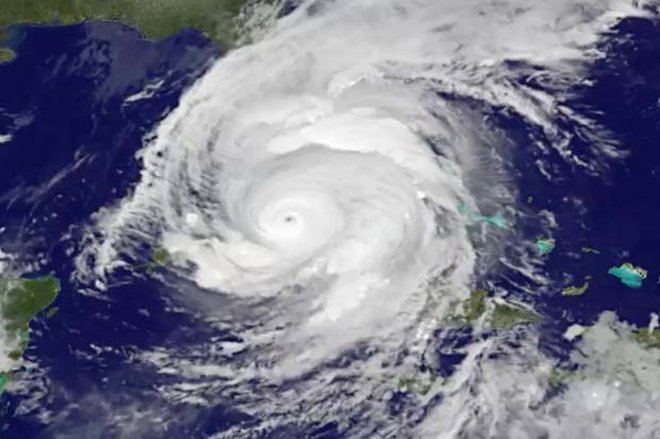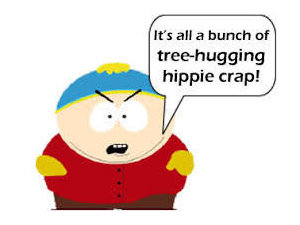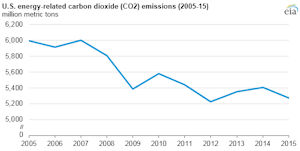Hurricanes and Climate Change
 | | Full disclosure: most of my friends and family live in Florida, so this one means a lot to me personally |
Now that Harvey is gone and Irma is a dying tropical storm pushing through the greater Northeast United States, we can look at the impact these devastating hurricanes have had, the damage they have done, and the political fury they have left in their wakes. Mainstream news outlets like CNN and The Los Angeles Times editorialize daily about the effect manmade climate change had in strengthening the storms and about the refusal of people on the political right to accept reality. Indeed, there are many prominent Republicans--including the governor of Florida, Rick Scott, and the President of the United States himself, Donald Trump--who are dismissive of any attempts to tie Harvey and Irma to greenhouse gas emissions.
I get why this is infuriating on both sides of the political spectrum. I can appreciate people who are busy trying to rebuild their lives not being receptive to proselytizing alarmism, and I can appreciate the frustrations of people who think we should be well beyond the point of arguing whether or not climate change is real and should instead be debating how best to tackle it. I can even sort of sympathize with the skeptics, with those whose lay questions about how much trust they can put into such a politically charged issue are met with scorn and condescension, who are in effect turned into denialists by the very people who should be trying to reach them.
The sad truth is that Irma and Harvey might have been made stronger because of climate change, and the human contribution to that shouldn't be dismissed out of hand. There is a lot of misinformation out there, however, and we shouldn't treat skeptics with derision. The average person, if he or she bothers to look into the issue at all, will be swarmed with all kinds of data both real and fictional, and expecting everyone to be savvy enough to parse through that without falling victim to confirmation bias, misinformation, and political scare-mongering is expecting way too much. Heck, I don't assume even I am capable of that.
 | | Turns out The Daily Show isn't an accurate source of scientific data |
In the past, I've gone very deep into the issue of anthropogenic global warming, and while I walked away with a stronger impression of how real it is, I also walked away humbled by how little certainty anyone can have about any of the details. Thus, while I think I may know more than your average joe, I definitely don't consider myself anything but an amateur stumbling in the dark. What I can say with certainty, however, is if you are getting your opinions on the matter from politicians and news editorials rather than your own research into the actual science, you are in no position to judge others for what they think.
What we desperately need at times like these is more understanding and less anger. Being mad at people for having a different perspective is a surefire way to increase division rather than broaden awareness. We need to try to meet the various sides of the argument on their own merits, not resort to appeals to motive or ad hominem attacks. It's all too easy to argue that skeptics are, at their root, driven by fossil fuel companies who contribute more to Republican candidates than Democratic ones. It's all too easy to accuse liberals of leaping to conclusions because they want to increase government control over the free market. In some ways, both of these arguments have merit, but they're largely moot points. Besides, not only is causality a two-way street, but if an appeal to motive is good for one side, it's just as good for the other: green energy companies and environmental activist organizations contribute far more to Democrats, and Republicans are ideologically predisposed towards smaller government. These motives are powerful, to be sure, but they do not change the facts.
And the facts are never as simple as a politician would have you believe.
Is manmade climate change real? I'm almost certain of it. Did it contribute to the size and strength of Irma and Harvey? It's plausible, even likely, but far from certain. Any good climate scientist will tell you it is foolish to tie any single storm season to a changing climate. Besides, if there are no massive storms next year or the year after that, wouldn't that have to be factored in, alongside the relatively mild hurricane seasons we've had for the last decade? Statistical probability leaves plenty of room for random chance, and humans are notoriously terrible at understanding how common unlikely events truly are. Just because the mechanism for tying greenhouse gas emissions to global warming to an unseasonably warm ocean to a particularly nasty set of hurricanes seems logical and simple, that doesn't mean it's true. After all, climate has never been and never will be simple. If it were, we wouldn't be having this debate.
 | | Eric doesn't speak for all skeptics |
We also must be vigilant against assumptions about final consequence. What I mean by that is, much like appealing to motive, we are all too quick to assume that an ideological position is fixated on a very specific goal. If you are a climate change alarmist, for example, a lot of people are going to assume you want to destroy the fossil fuel industry overnight, that you believe we should sign every climate treaty being proposed at the United Nations, and that you hate capitalism. If you are a climate change denialist, however, a lot of people are going to think you want to pollute the air, drive solar power out of business, ban communist literature, and kill polar bears. These charicatures and straw men, while obviously grotesque, can be surprisingly compelling.
If our ultimate goal is figuring out how to mitigate manmade climate change--as it should be--then we need to have a rational discussion about it. Yes, I recognize how difficult that can be when a significant portion of the public refuses to believe there even is a problem. However, I think those people can be reached, as long as those of us who recognize the problem don't get blown away by our own arrogance and frustration. Acting smug and annoyed is not a particularly effective way to change hearts and minds (especially in the throes of a disaster), and starting from the assumption that you are smarter than the person you're talking to is never going to get you anywhere good.
We also need to stay grounded when it comes to ideological differences. The debate over bigger government or smaller government isn't one that should be waved away as irrelevant, and it is a major part of the climate change debate. In order to explain what I mean by that, let me go off on a bit of a tangent regarding my own political views on the matter.
There are those of us who know manmade climate change is almost certainly real, but who also believe that the free market is doing a much better job of handling the problem than any government. This country is well on its way to meeting the goals set by the Paris Climate Accords (but not necessarily the timeline), even though we're no longer politically attached to them. Clean energy is becoming more cost effective every day, not because of government intervention, but despite it. I honestly believe we'd be far greener if it weren't for ridiculous regulatory and subsidization schemes that have maintained the fossil fuel industry's big fish status for decades. It might just be possible that the problem of manmade climate change is already being handled better by Adam Smith's invisible hand than by the boot of regulatory authority, and that less top-down intervention would be better than more, especially in the long run.
 | | The data don't care about your politics |
For instance, the auto industry has made more fuel efficient cars over the years, not because of legal mandate, but because of high gas prices and the natural incentives of capitalism. Imagine how much faster that would work if there were no oil subsidies. Millions of Americans are installing solar panels on their homes and businesses, not because of some international agreement, but because it's cheaper for energy companies, most of which will happily pass along the savings to the consumer. (Seriously, if you own your own home or any other building, talk to your local utilities company and see what your locality will allow; you might save money.) Imagine how many more people would do this if there weren't so many outdated regulations and ordinances holding them back.
This is not to say I believe the government has no role to play. At the local level, we need to do a much better job prepping our coastal cities for bad weather, and at the state and federal level, we need to continually improve our already fairly remarkable aid and assistance programs. And that's just a start. You don't even need to "believe" in anthropogenic global warming or be a devotee of Al Gore to see the benefits for all of that. Even though that's my political take, I won't yell at you if you honestly believe we need an internationally mandated cap-and-trade system. If you can articulate reasons why that would work better than what we're already doing, I'm all ears.
But I'm tired of the shrillness. Please stop yelling. And please stop with the sarcasm, the biting memes, the arrogant assumptions, and the demagoguery. Let's come together. Let's discuss this like rational adults, all of us. Closed-minded partisanship is definitely not the solution here. Open-minded cooperation is.
-e. magill 9/14/2017
|
|